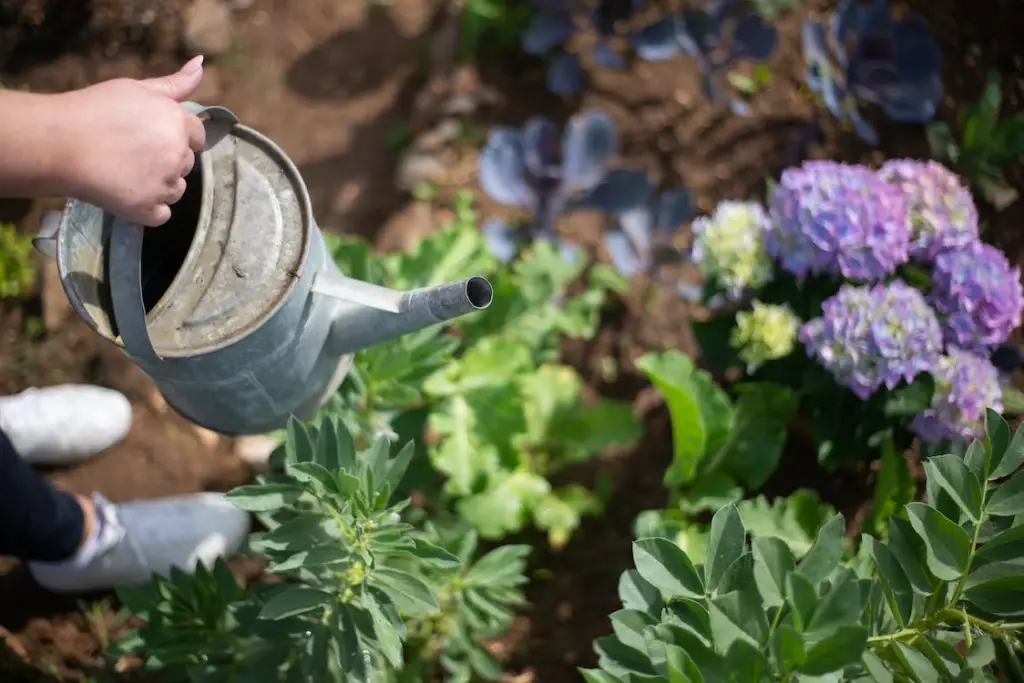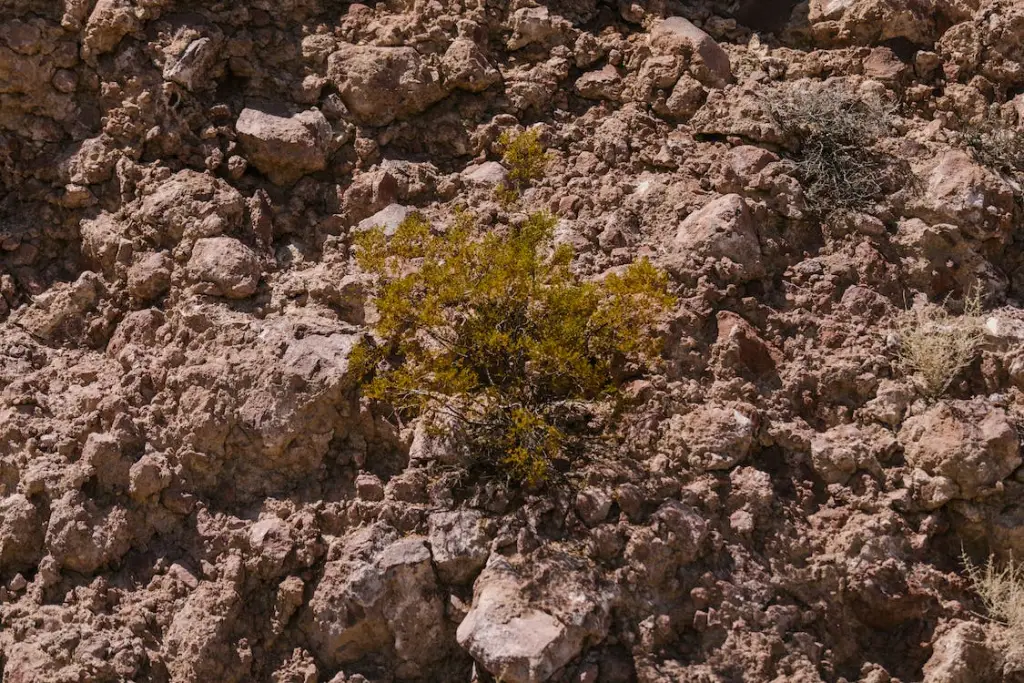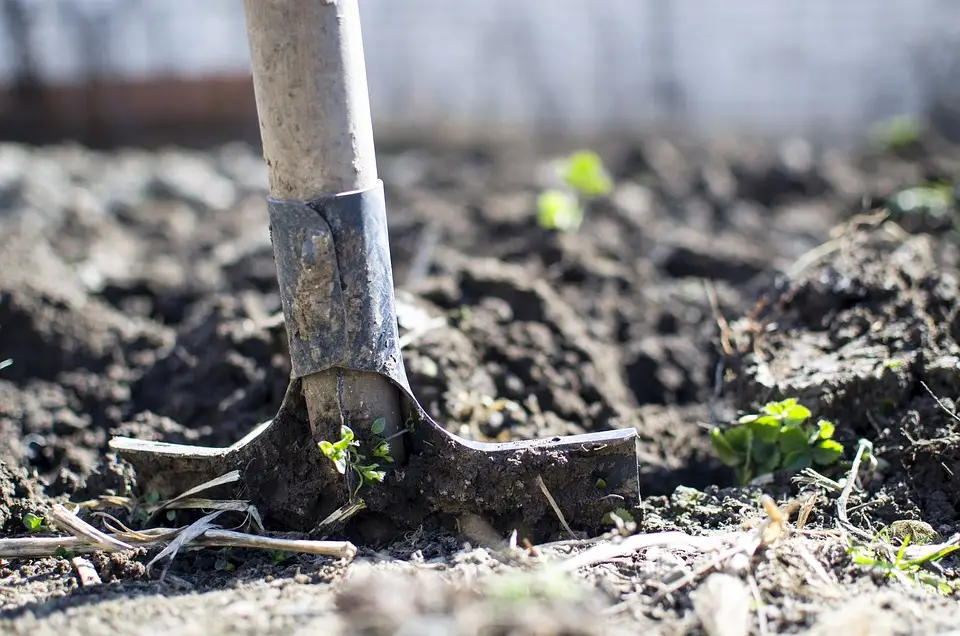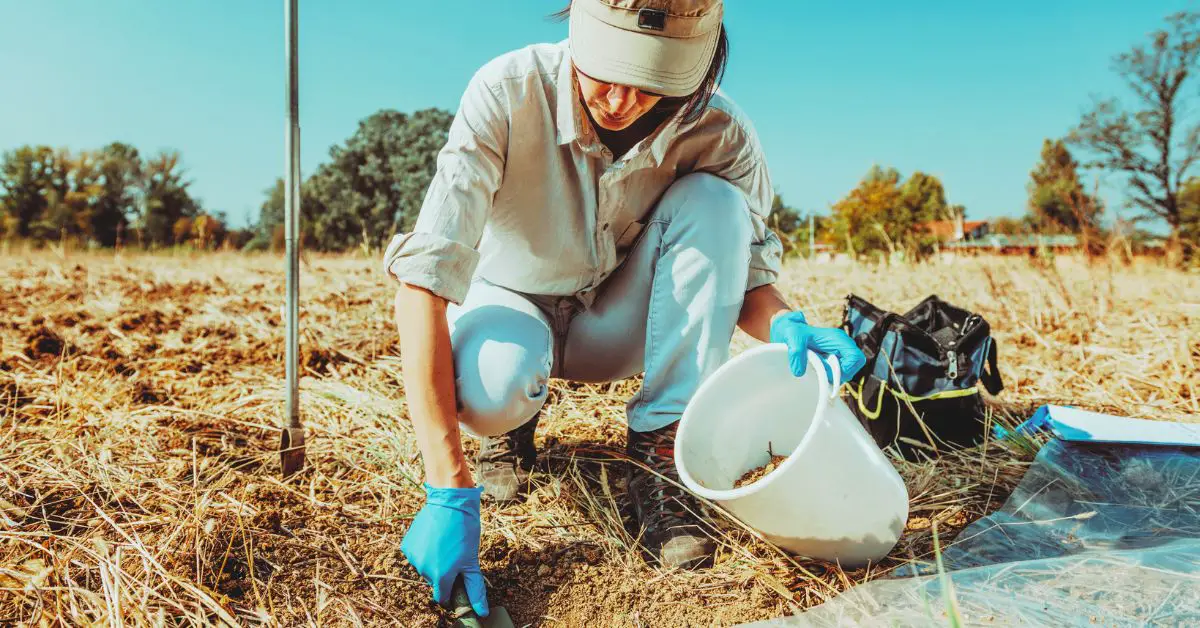We used the latest data and insights to identify the highest paying soil science jobs so that you can learn and earn more.
Soil science is one of the most exciting, challenging, and rewarding career paths you can take. It’s also a great option if you’re looking for a well-paying job.
We’ve compiled a list of the highest-paying soil science jobs to help you find a career path that’s right for you.
Statistics are extracted from data provided by the Bureau of Labor Statistics (BLS), Payscale, and other top job websites.
Let’s dive in!
Similar Articles:
- 10 Highest Paying Criminal Justice Jobs to Consider
- 10 Highest Paying Management Jobs
- 10 Highest Paying Commerce Jobs to Consider
Table of Contents
#10. Crop and Soil Scientist

How much do they get paid?
- Source: Comparably
- Low Range: $39,745 per year
- High Range: $53,000 per year
- Median Pay: $46,373 per year
What do they do?
A crop and soil scientist is a professional who works in agriculture and researches the effects of practices on crops and soil.
People with this job are responsible for studying the growing conditions that affect plant growth and productivity. They work with farmers to develop new methods and technologies that improve crop production.
These scientists also monitor crops, conduct research and analysis, and create reports on their findings.
What degrees and skills are usually required?
Crop and soil scientists need at least a bachelor’s degree in agronomy or natural sciences degree related to crop and soil science.
Some employers prefer candidates with graduate degrees, such as master’s degrees in agronomy, environmental sciences, or soil sciences. Some training programs allow students to earn credit for previous experience working on farms.
Who’s hiring for this job?
These plant scientists work for private companies, government agencies, and nonprofit organizations.
Some crop scientists work for seed companies to develop new strains of crops with specific traits that meet the needs of a particular farmer or industry. Other crop scientists work directly with farmers to help them improve their production methods.
What is the best way to get this job?
To get into this job, you should take courses covering various topics, including soil science, crop physiology, and genetics.
You can also gain experience in the field through internships and cooperative education programs.
Should you become a crop and soil scientist?
#9. Soil Technician

How much do they get paid?
- Source: ZipRecruiter
- Low Range: $29,500 per year
- High Range: $73,500 per year
- Median Pay: $49,222 per year
What do they do?
Soil technician is a field that’s on the rise. Soil technicians assist scientists in soil research. They also work with farmers. For example, a soil technician may help farmers find ways to grow more plants or increase their crop yields.
These specialists might also use their knowledge to improve water quality by helping communities reduce farm runoff.
What degrees and skills are usually required?
Soil technicians have at least a high school diploma and several years of work experience. These professionals may also have an associate’s degree in soil science or a bachelor’s degree in plant and soil sciences.
Who’s hiring for this job?
Soil technicians work for state and local governments, universities, research laboratories, and private companies.
What is the best way to get this job?
To get your foot in the door in this field, you’ll need to earn a degree in soil science. Then apply for entry-level positions with state, county, or federal soil agencies.
You can also find opportunities in environmental consulting firms or private companies specializing in agricultural issues.
What is it like to be a soil technician?
Similar Articles:
- 10 Highest Paying IT Jobs to Consider
- 10 Highest Paying Programming Jobs to Consider
- 10 Highest Paying Forensic Science Jobs to Consider
#8. Soil and Plant Sciences Professor

How much do they get paid?
- Source: Comparably
- Low Range: $35,734 per year
- High Range: $60,000 per year
- Median Pay: $50,000 per year
What do they do?
Soil and plant sciences professors teach students about the soil science industry. Soil and plant sciences encompass a wide variety of agricultural fields, from soil chemistry and physics to microbiology and ecology.
What degrees and skills are usually required?
A professor in this field must have a bachelor’s degree in animal or plant science and an advanced degree in the subject they wish to teach.
Employers may prefer candidates with experience, but they also accept new graduates with a master’s degree or Ph.D. Job duties include teaching classes, grading papers and projects, working with students on research projects, creating lesson plans, and more.
Who’s hiring for this job?
Most professors work for colleges and universities, but some may work for the government or private companies.
What is the best way to get this job?
To become a soil and plant sciences professor, you’ll need at least an undergraduate degree in one of these subjects. You also need a Ph.D. if you’re going into academia.
This profession requires coursework beyond your bachelor’s degree. You may need to work as an assistant professor first, then get a tenured position.
What is it like to be a soil and plant sciences professor?
#7. Soil Research Scientist

How much do they get paid?
- Source: Payscale
- Low Range: $35,000 per year
- High Range: $86,000 per year
- Median Pay: $51,858 per year
What do they do?
Soil research scientists are responsible for the study of soil, its composition, and its physical structure. They look at the development of soils from formation to their current state.
This may include conducting experiments on how they change over time in different environments, studying soil organic matter and carbon content, and examining nutrient levels and fertility.
What degrees and skills are usually required?
The educational requirements vary depending on your career path, but all will require at least a bachelor’s degree in soil science or agronomy. A master’s degree will give you more opportunities to pursue a career in academia or government research institutions.
The most common jobs for this position are in a private company or consulting firm that focuses on agriculture, engineering, or environmental protection issues related to agriculture, such as pollution control or remediation projects.
Who’s hiring for this job?
Soil research scientists may also work for government agencies, such as state departments of agriculture or the U.S. Department of Agriculture (USDA). The USDA employs soil scientists to develop and implement programs that protect soil fertility, improve crop yields, and provide food for Americans.
What is the best way to get this job?
There are several ways you can get into this field, including volunteering with an organization that provides information about growing seasons. After gaining experience, you can seek an entry-level position with a government agency or agribusiness company.
What is it like to be a soil research scientist?
Similar Articles:
- 10 Highest Paying Geography Jobs to Consider
- 10 Highest Paying Aviation Jobs to Consider
- 10 Highest Paying Insurance Jobs to Consider
#6. Environmental Scientist

How much do they get paid?
- Source: Payscale
- Low Range: $41,000 per year
- High Range: $78,000 per year
- Median Pay: $53,915 per year
What do they do?
Environmental Scientists are responsible for protecting and maintaining the natural environment. They conduct research and collect data to assess the effect of human activity on the environment and recommend ways to mitigate these effects.
What degrees and skills are usually required?
These environmental engineers have a bachelor’s degree in environmental science or a related field, plus at least one year of professional experience.
Who’s hiring for this job?
Environmental scientists work for state and federal government agencies, non-profits, and private corporations. They can also choose to become teachers or professors at the post-secondary level.
What is the best way to get this job?
The best way to get into this field is by enrolling in an accredited program in environmental science. Then apply for entry-level jobs with local governments or federal agencies.
What is it like to be an environmental scientist?
#5. Soil Fertility Specialist

How much do they get paid?
- Source: Comparably
- Low Range: $35,770 per year
- High Range: $105,390 per year
- Median Pay: $60,050 per year
What do they do?
Soil fertility specialists’ duties vary depending on their employer but typically include developing improved fertilizers. They may also be involved in researching:
- how different plants grow under various environmental conditions.
- how farming techniques affect public health.
What degrees and skills are usually required?
These specialists have a minimum of a bachelor’s degree in soil science, with some employers requiring a master’s degree. They must also be familiar with agricultural practices and have excellent communication skills.
Who’s hiring for this job?
Soil fertility specialists work for governmental agencies, agricultural companies, and research organizations. They may work indoors or outdoors depending on their employer’s needs. These specialists earn an average salary of $60,050 per year.
What is the best way to get this job?
To get into this profession, you should pursue an advanced degree in soil fertility or related fields. You should also gain experience in agricultural fields, preferably at a university or research facility.
Should you become a soil fertility specialist?
Similar Articles:
- 10 Highest Paying Jobs For Business Administration Majors to Consider
- 10 Highest Paying Cyber Security Jobs to Consider
- 10 Highest Paying Jobs For Statistics Majors to Consider
#4. Soil Conservation Scientist

How much do they get paid?
- Source: Salary.com
- Low Range: $46,559 per year
- High Range: $109,484 per year
- Median Pay: $75,282 per year
What do they do?
Soil conservation scientists study how to best manage land and soil resources. They work with farmers to improve their production and protect the environment. This can include planning for things like erosion control, irrigation systems, and managing pests and weeds that may damage crops or livestock.
What degrees and skills are usually required?
The educational requirements for this position include a bachelor’s degree in soil science, environmental science, or a related field. You should also have relevant work experience. However, some states accept internships instead of work experience to meet their minimum requirements.
Who’s hiring for this job?
These environmental specialists typically work for the government or as consultants. They may also work for a nonprofit organization such as the Soil Conservation Service or The Nature Conservancy.
What is the best way to get this job?
With the proper education, you can get a job as a soil conservationist. If you want to become a soil conservationist, it’s important to learn about the profession and its requirements.
Be on the lookout for soil conservationist jobs and apply for them. You could get a job as an intern or volunteer with a conservation agency, which would give you valuable experience.
Should you become a soil conservation scientist?
#3. Soil Scientist

How much do they get paid?
- Source: Glassdoor
- Low Range: $53,000 per year
- High Range: $112,000 per year
- Median Pay: $76,750 per year
What do they do?
Soil scientists study the physical, chemical, and biological properties of soil. They are also responsible for examining how these properties affect plant growth, water supply, and waste disposal. This job is a good fit for someone who enjoys working outdoors and has an interest in science.
What degrees and skills are usually required?
Educational requirements include an undergraduate degree in soil science or a related field and a graduate degree in soil science. You may also need certification from the Soil Science Society of America (SSSA).
Who’s hiring for this job?
A soil scientist might work in government, academia, or the private sector. You can find them in various industries, including agriculture, mining and drilling operations, construction, manufacturing, and chemical plants.
A soil scientist’s job is to examine soil’s properties to determine how we can use it to improve human health.
What is the best way to get this job?
To get started, you’ll need to earn a bachelor’s degree in soil science. A master’s degree is highly recommended, as it can help you advance your career. If you want to become a professional soil scientist, then you will also need to earn certification from the Soil Science Society of America (SSSA).
Once you have your degree, you can begin looking for soil science jobs. You could start by searching for jobs on Monster, Indeed, and LinkedIn.
If you’re looking for work in a specific industry, such as agriculture or mining and drilling operations, then you may want to do some research about the companies that operate there.
What is it like to be a soil scientist?
Similar Articles:
- 10 Highest Paying Jobs For Food Science Majors to Consider
- 10 Highest Paying Meteorology Jobs to Consider
- 10 Highest Paying International Relations Jobs to Consider
#2. Mud Engineer

How much do they get paid?
- Source: Glassdoor
- Low Range: $50,000 per year
- High Range: $127,000 per year
- Median Pay: $79,067 per year
What do they do?
A mud engineer is a soil scientist who specializes in the design and construction of dams and other structures built on water-logged soil. A mud engineer works to ensure that these structures are stable and durable. They may also work to fix or improve existing dams.
What degrees and skills are usually required?
Employers prefer someone with a bachelor’s degree in soil science or engineering. Experience working on projects that involve waterlogged soil is also a plus.
Mud engineers must have a high level of physical fitness, as they often work outdoors in all types of weather. They may also need to travel frequently for field research.
Who’s hiring for this job?
Mud engineers work for government agencies, private companies, and research facilities. They may specialize in areas such as dam construction or soil chemistry.
What is the best way to get this job?
To get a job as a mud engineer, you will need to work for several years as an entry-level engineer. You can also try to get into a graduate engineering or soil science program. Then apply for jobs after graduation. Alternatively, you may need to start out as a technician before working your way up to engineer.
You can find mud engineering jobs by searching Monster. You may also want to check with local organizations that work on water management projects.
What is it like to be a mud engineer?
#1. Hydrologist

How much do they get paid?
- Source: Salary.com
- Low Range: $73,713 per year
- High Range: $123,289 per year
- Median Pay: $96,282 per year
What do they do?
A hydrologist is a person who studies water resources. These professionals are responsible for assessing the quality of water for drinking and the risk of flooding in an area. They also develop solutions for managing farm runoffs.
What degrees and skills are usually required?
The educational requirements for this job are a bachelor’s degree in chemistry, biology, geology, or soil science. Hydrologists also have to complete an internship or fieldwork experience and pass a certification exam.
Who’s hiring for this job?
Hydrologists work for government agencies, environmental consulting firms, and water utilities. They are often called upon to make recommendations regarding the management of the local water supply.
What is the best way to get this job?
To get this job, you’ll need to meet the minimum education and experience requirements. You’ll also need to pass a certification exam and have at least one year of professional experience. Apply for entry-level hydrologist jobs and work your way up in the field.
What is it like to be a hydrologist?
Similar Articles:
- 10 Highest Paying Architecture Jobs to Consider
- 10 Highest Paying Jobs For Biophysics Majors to Consider
- 10 Highest Paying Digital Marketing Jobs to Consider
Conclusion
Soil science is an exciting career path with many options and opportunities for growth. Whether you want to be a soil scientist or an environmental lawyer, there are many jobs for you out there.
The most important thing is that you use your skills and interests to find the right job. We hope this guide has been helpful to you. If you still have questions about how to find the best-paying soil science jobs for you, don’t hesitate to reach out.


